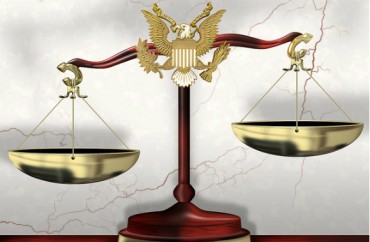
The title is from Hans Bader’s June 2 statement to the US House Judiciary Committee in response to measures taken by the Department of Education in restricting constitutionally protected speech.
Bader is an attorney who used to work at the US DOE’s Office for Civil Rights.
From his statement’s summary:
The Education Department has effectively redefined constitutionally protected speech as “sexual harassment” even when it would not offend the reasonable person; is not severe; does not occur on school grounds; and is not gender-discriminatory. By doing so, it has ignored Supreme Court rulings and other court decisions, which require that speech or conduct be offensive to a reasonable person to constitute sexual harassment; be both severe and pervasive to trigger Title IX liability; occur on school grounds; and be based on victims’ sex, not merely sexual in content or subject matter.
In doing so, it has effectively mandated an unconstitutional speech code even broader than the ones struck down by federal judges after college students demonstrated a real possibility that they could be punished merely for discussing certain gender-based differences between men and women, or advocating political positions on gender issues, such as that women be banned from combat roles in the military. The danger that overly broad definitions of harassment will stifle campus debate about important political and social issues is very real, since students have been charged with racial or sexual harassment for discussing issues such as affirmative action, feminism, homosexuality, and the death penalty under broadly worded campus harassment policies.
While colleges could theoretically raise First Amendment objections to the Education Department’s overly broad definition of harassment, they are unlikely to do so, because the Education Department’s Office for Civil Rights (OCR) could cut off all their federal funds, or subject them to an extremely costly investigation, for failure to comply. It is generally cheaper for a college to violate the First Amendment than to be accused of violating laws against sexual harassment or discrimination, as I explain later on.
To prevent widespread censorship, and prevent OCR from enforcing an unconstitutionally overbroad definition of “harassment” at the expense of free speech, Congress should consider passing a law requiring the Education Department to use the definition of sexual harassment found in the Supreme Court’s Davis decision in its regulations. That would keep speech from being defined as harassment in violation of federal regulations unless it is unwelcome, aimed at victims based on their sex, and “severe, pervasive, and objectively offensive” enough to interfere with access to an education.
Also see his Obama Administration Pressures Colleges to Adopt Unconstitutional Speech Codes.
Like The College Fix on Facebook / Follow us on Twitter
IMAGE: DonkeyHotey/Flickr






Please join the conversation about our stories on Facebook, Twitter, Instagram, Reddit, MeWe, Rumble, Gab, Minds and Gettr.